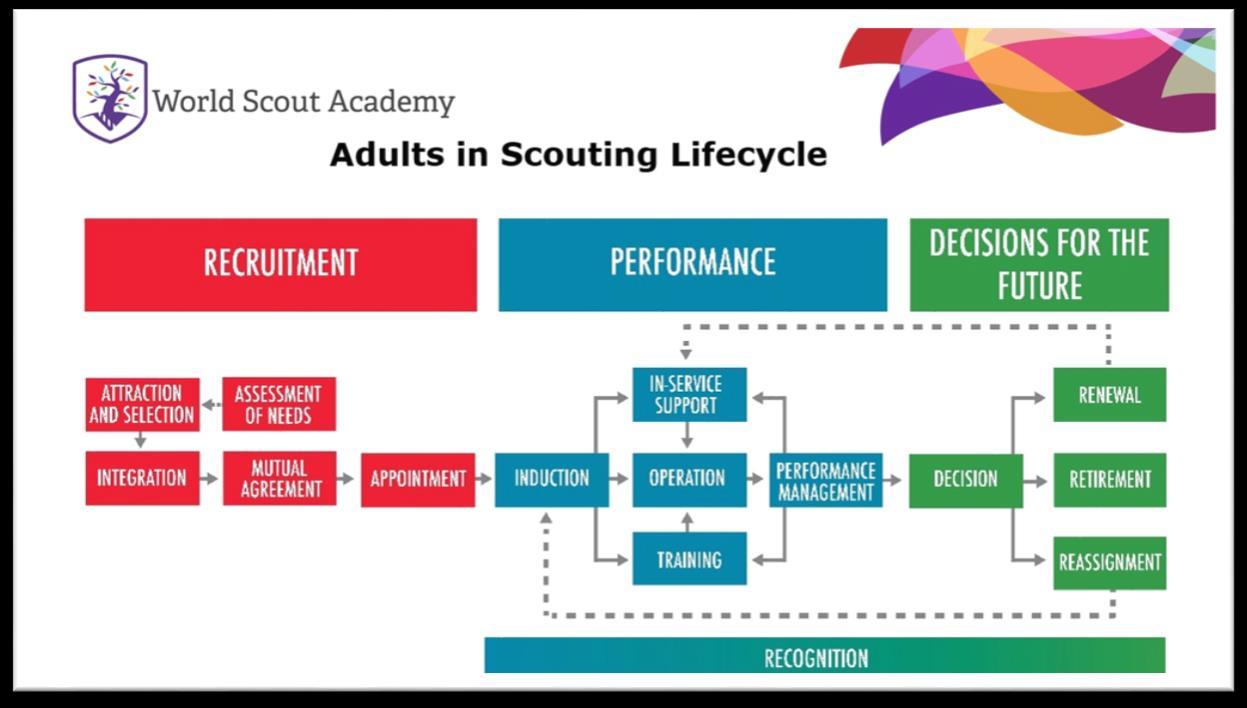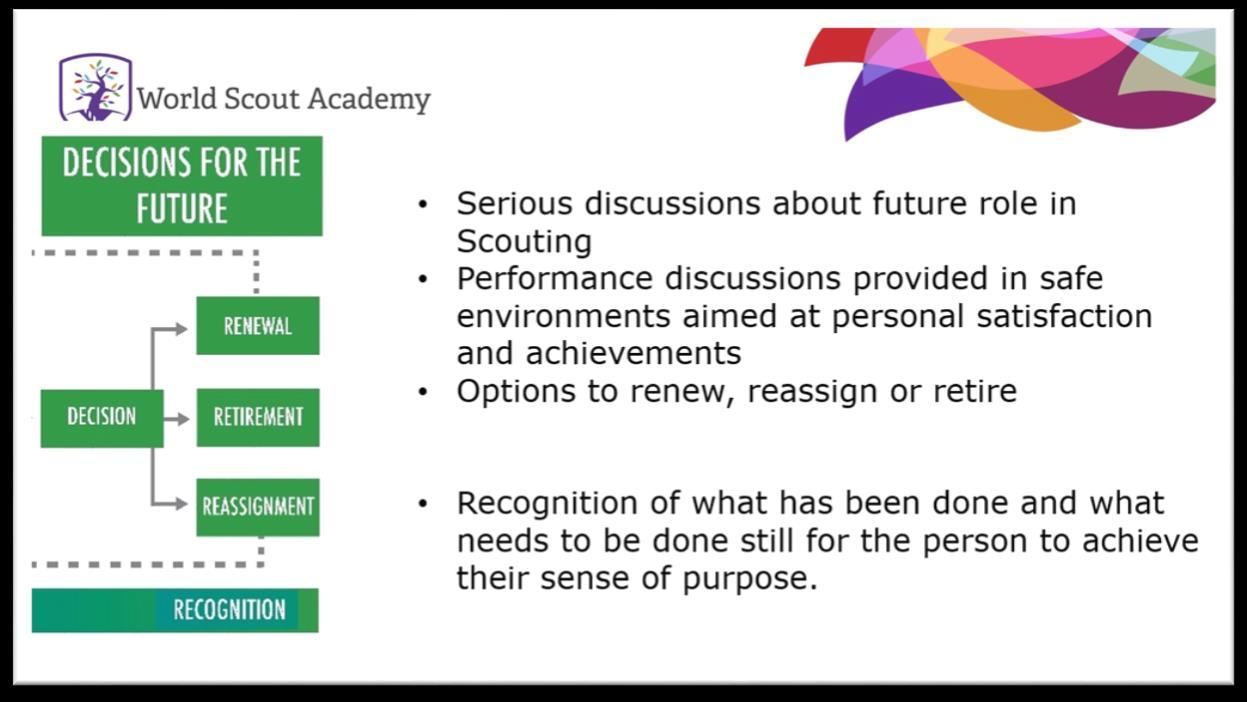
2 minute read
ANNEXES
recognition of them. While many tend to focus on formal recognition via awards, there are actually many different ways to recognise and celebrate accomplishments. It may be as simple as a ‘thank you’ from another person, youth or parent for assisting learn a new skill, or a presentation of a certificate. Sometimes, it could be a Scout qualification, a badge, or a vocational qualification gained from a Scout training. However, during this process it is important to remember that, at the core of this work, we are recognising and celebrating an individual who had the opportunity to thrive and experience success in Scouting. A key to volunteer wellbeing and retention is that, in our planning, we ensure that we are creating exciting opportunities and supportive environments, through our structures and the supports which we provide, to ensure that every Adult in Scouting has the opportunity to thrive, to experience success, and to accomplish their goals.
Planning for Wellbeing in Supporting Adults in Scouting
Professor Martin Seligman, the father of the wellbeing theory and PERMA, outlined that he proposed PERMA and its elements as the building blocks of wellbeing (Seligman, 2018). The five building blocks outlined in PERMA provide an excellent framework against which we can evaluate our approaches to supporting Adults in Scouting. We encourage you as you undertake your Scouting duties regardless of your role, to reflect on these five aspects as you consider your wellbeing and what you can do to assist the wellness of others in Scouting. Like the three parts of the Adults in Scouting Lifecycle, each of these building blocks can be pursued for its own purpose. They can stand alone and can be defined and measured independently of each other. However, these aspects are also cyclical impacting on the collectiveness of wellbeing.
The importance of building on positive emotions through engagement with others and maintaining positive relationships will assist greatly in providing meaning and purpose for you and your work in Scouting. Positive experiences and your accomplishments along your Scouting journey will provide greater joy and wellness for you and those your encounter. Remember we are all in this together. Great Scouting!
ANNEXES
Wellbeing aspects within the Life Cycle of Adults in Scouting



References
Butler, J., & Kern, M. L. (2016). The PERMA-Profiler: A brief multidimensional measure of flourishing. International Journal of Wellbeing, 6(3), 1-48. doi:10.5502/ijw.v6i3.526 D’Acci, L. (2011). Measuring well-being and progress. Social Indicators Research, 104(1), 4765. Diener, E., & Suh, E. (1997). Measuring quality of life: Economic, social, and subjective indicators. Social Indicators Research, 40(1/2), 189-216. doi:10.1023/A:1006859511756 Medvedev, O. N., & Landhuis, C. E. (2018). Exploring constructs of well-being, happiness and quality of life. PeerJ, 6, e4903. Seligman, M. E. P. (2011). Flourish: a new understanding of happiness and well-being - and how to achieve them. London: Nicholas Brealey. Seligman, M. E. P. (2018). PERMA and the building blocks of well-being. The Journal of Positive Psychology, 13(4), 333-335. doi:10.1080/17439760.2018.1437466 World Health Organisation (2014). Mental health: A state of wellbeing. http://origin.who.int/features/factfiles/mental_health/en/ World Organisation of the Scout Movement (2017). Consitution of the World Organization of the Scout Movement. https://www.scout.org/sites/default/files/library_files/WOSMconstitutionV2017%20EN% 20FR%20xweb_1.pdf







